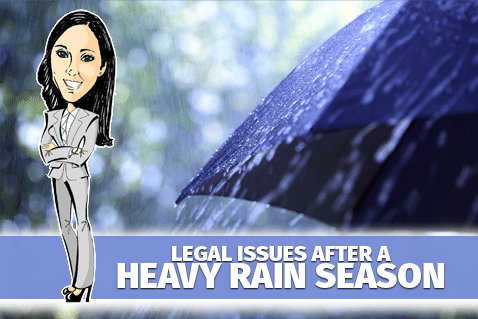Tsvetana Yvanova (“Yvanova”) was a borrower who obtained a loan from New Century Mortgage Corporation (“NCMC”) in 2006. In 2007, NCMC filed for bankruptcy and in 2008, its assets were liquidated. In 2011, several years after NCMC was liquidated, NCMC executed an assignment of the deed of trust to Deutsche Bank National Trust (“Deutsche”) while noting that the beneficiary of the loan was a Morgan Stanley Trust. The Morgan Stanley Trust had a provision where any loans that were to be held by the trust must be transferred to the Trust by 2007. In 2012, Western Progressive was substituted in as the foreclosing trustee and recorded a notice of default. Eventually, at the end of 2012, Western Progressive foreclosed on the property and recorded a deed of trust to the winner of the auction, THR California LLC.
In response to the foreclosure sale, Yvanova filed a lawsuit stating that the foreclosure was void for two major reasons. First, NCMC had filed for bankruptcy in 2007 and could not have assigned the deed of trust to Deutsche. Second, the Morgan Stanley Trust could not accept new mortgages after 2007. The defendants demurred and the motion was granted without leave to amend. Yvanova then appealed the decision and it was affirmed by the court of appeal. There, the court found that a borrower could not challenge an improper assignment of the deed of trust because the borrower was not a party to the transfer and therefore had no standing to challenge transfer. In addition, since Yvanova was in default of the loan, she was not harmed even if the transfer was defective. Yvanova then filed an appeal to the California Supreme Court.
THE DECISION:
The California Supreme Court unanimously overturned the lower court’s decisions and held that a borrower had standing to challenge a completed foreclosure sale on the grounds that the assignment of the deed of trust was improper. The Court went through an in depth analysis of previous lower court decisions and decision in other jurisdictions on whether a borrower could challenge the foreclosure sale based on an improper assignment of the deed of trust. In the end, the Court found that such a challenge was possible because an improper sale was void as a matter of law and could never be ratified by the parties even if they wanted to. The Court reasoned that in a situation where an assignment was improperly made, the foreclosing party never had a right to foreclose and therefore any sale arising from the foreclosure was without legal effect. In addition, the Court rejected defendants’ argument that the borrower suffered no harm from the foreclosure because the borrower had already defaulted on the loan. The Court held that this was not correct because that argument would allow any party, including roving commissions of bounty hunters, to foreclose on a delinquent loan without a borrower being able to challenge the sale.
WHY THIS DECISION IS IMPORTANT:
This decision will likely open up the floodgates to more wrongful foreclosure litigation. Previously, the courts had made it very difficult for a borrower to challenge a foreclosure sale after it had been completed. Here, the Court reversed this position and gave borrowers rights to challenge a foreclosure sale after it had happened. In fact, the Court implied in its decision that this right to challenge the sale based on a failure to properly assign the deed of trust could only occur after the foreclosure. The Court explicitly refused to address whether a borrower could raise the argument pre-foreclosure and left in place a lower court decision that said a borrower could not challenge an assignment before the foreclosure sale occurred.
COMMENT:
This case will cause serious problems for lenders and foreclosure investors. Previously, the courts had focused on the importance of maintaining the integrity of the foreclosure process and the importance of protecting bona fide purchasers at foreclosure sale. Here, the court reversed that position and provided grounds for challenging a foreclosure sale only after it had occurred. Further, these securitization and assignment issues are prevalent throughout the industry and it is not clear if lenders will be able to successfully defend against such a suit.





